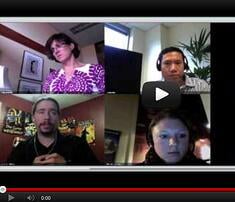 When it comes to the ethical issues that face writers, self-plagiarism is one of the most difficult and hotly-debated topics out there. Not only are there tremendous disagreements as to what self-plagiarism is, many don’t agree that it exists at all.
When it comes to the ethical issues that face writers, self-plagiarism is one of the most difficult and hotly-debated topics out there. Not only are there tremendous disagreements as to what self-plagiarism is, many don’t agree that it exists at all.
Yet, despite this controversy, self-plagiarism has been in the news more than ever. In journalism, the Jonah Lehrer scandal brought self-plagiarism to the forefront of a global discussion and, in academia, increased retractions and rejections due to self-plagiarism have made it a topic of interest in academic circles.
But before we can find solutions to the rising problem of self-plagiarism, we have to first understand what it is and what is causing the recent rise. With that in mind, earlier this month, iThenticate held a webcast entitled “What is Mine is Mine: Self-Plagiarism, Ownership and Author Responsibility”.
Moderated by Jason Chu, the plagiarism educator at turnitin, it featured Kelly McBride, the senior faculty of ethics, reporting and writing at Poynter, Rachael Lammey, project manager at CrossRef and myself, Jonathan Bailey, plagiarism consultant and blogger at Plagiarism Today, the webcast aimed to delve into what self-plagiarism is, why it seems to be on the rise and, most importantly, what can be done about it.
What followed was an hour-long discussion about a difficult topic with people from very different backgrounds and perspectives on the subject, all of whom are struggling to understand and address the issue.
The discussion began with a survey asking both the panelists and the attendees how serious of an offense they felt self-plagiarism was. After that, the conversation shifted to the panelists and centered around four key questions:
- When and why is self-plagiarism considered a form of scholarly misconduct?
- What has changed in the past decade that has contributed to the rise in self-plagiarism allegations?
- What is being done to prevent self-plagiarism?
- What are some resources or advice for writers, researchers and journalists for avoiding self-plagiarism?
However, the biggest highlights of the webcast came from the questions asked by the audience, looking at specific cases of how and when to cite previous work, issues of copyright and how they relate to self-plagiarism and the frustration publishers have trying to approach self-plagiarism issues with authors.
In the end, it was a powerful, direct and frank discussion about a difficult topic that many people have trouble approaching.
If you were unable to attend the webcast, you can watch the full recording. If you’d prefer a shorter recap of it, you can download our paper, which covers all of the highlights of the panel as they happened.
Either way, this is definitely a conversation you don’t want to miss, considering the increasingly important role self-plagiarism is going to play in the publication ethics across nearly all fields of writing.
Read the webcast highlights paper (PDF)
Related
Related
Topics: Current Events,Best Practices